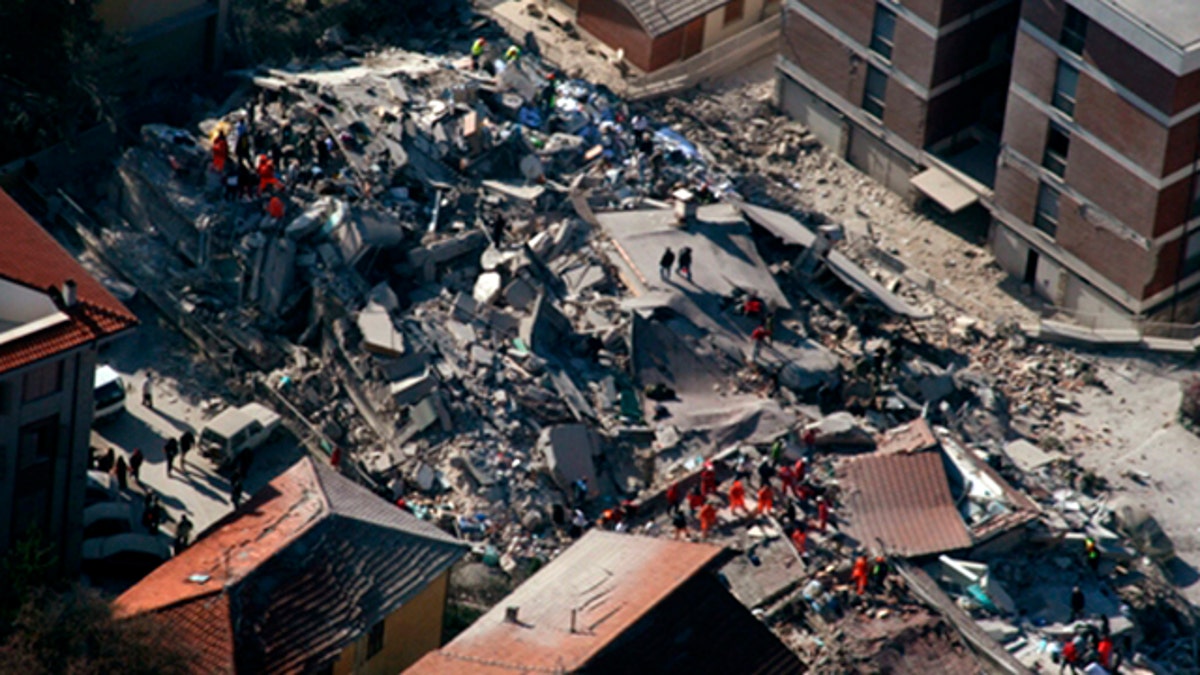
April 6, 2009: An aerial photo provided by the Italian Police shows the debris of a collapsed building in an area near L'Aquila, central Italy, after a powerful earthquake shook central Italy. (AP Photo/Italian Police)
A group of Italian scientists went on trial Tuesday for failing to predict an earthquake that killed more than 300 people in central Italy in 2009 despite signs of increased seismic activity in the area.
The seven defendants -- six scientists and one government official -- are accused of manslaughter in a case that some see as an unfair indictment of science.
Prosecutors say residents around the city of L'Aquila in the mountainous Abruzzo region should have been warned to flee their homes in the days before the quake.
"We simply want justice," L'Aquila prosecutor Alfredo Rossini said. The injured parties are asking for €50 million ($68 million) in damages.
The defendants were members of a panel that had met six days before the earthquake to assess risks after hundreds of tremors had shaken the medieval university city. At that meeting, a committee analyzed data from the low-magnitude tremors and determined that the activity was not a prelude to a major earthquake.
The only one of the seven defendants present at Tuesday's hearing was Bernardi De Bernardinis, a former senior official in the Civil Protection Agency. The other defendants include top scientists like Enzo Boschi, former director of Italy's National Institute of Geophysics and Vulcanology, as well as Claudio Eva, a physics professor at Genoa University in northern Italy.
"This is a trial which opens on very shaky foundations. You cannot put science on trial," Alfredo Biondi, Eva's lawyer, said.
The case was adjourned until Oct. 1 when the prosecution will begin to question witnesses.
The experts are accused of giving overly reassuring information to residents who could have taken adequate protective measures if they had been properly informed.
However, in an open letter to Italian President Giorgio Napolitano, more than 5,000 scientists said the defendants faced criminal charges for failing to predict earthquakes, even though this remains technically impossible.
Vincenzo Vittorini, a physician who lost his wife and daughter in the disaster, said, "I hope that this trial will change mindsets and will lead to greater attention given to communication on risks. No one expected to be told the exact time of the quake. We just wanted to be warned that we were sitting on a bomb," he added.
Some 120,000 people were affected by the L'Aquila earthquake, which also destroyed the city's historic center and medieval churches.